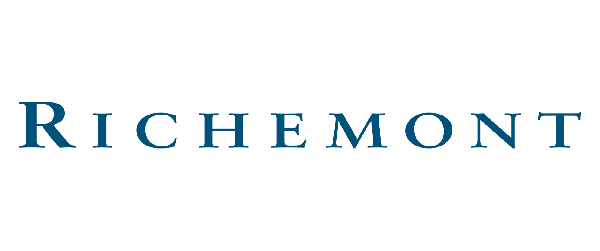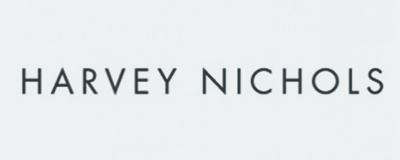2024 Accounting Salary Guide Event: Our Top Finance Market Takeaways
Last Thursday, JasperRose held an exclusive Accounting Salary Guide Event with attendees across all levels of finance. The event included insights across all levels of the finance market, and we are going to share our top takeaways with you in this article.
The event was hosted by JasperRose’s Managing Associate Lizzie Politi, who heads up our Part-Qualified Finance Recruitment. It was also co-hosted by Kristy Jasper, our Co-Founder and Director and head of our Executive Finance Recruitment, and our Senior Business Administrator Charlotte Stevens-Mulroe presented insights around DE&I in Finance. Together, our speakers presented the research from our 2024 Salary Survey and insights from our recruitment practices, data, and industry conversations, covering trends in accounting from junior to executive level finance across interim and permanent positions.
In this article, we will cover:
- The Finance Market in 2024
- Career Trends in Finance
- The Rise of AI in Finance
- The Four-Day-Working-Week in Businesses
- Hybrid Working in Accountancy Teams
- Talent Retention in Finance Teams
- Talent Attraction in Finance Recruitment
- Diversity, Equity and Inclusion
For plenty more insights, download our 2024 salary guide here or get in touch with us if you have any finance career or hiring questions.
1. The Finance Market in 2024
Heading into the second quarter of 2024, we have seen inflation drop to below 5%, a recession announced, and war across the middle east. This has resulted in an unusually slow market for financial recruitment, with less businesses opting to hire and a lowered confidence in the market. We’ve also seen a big shift in business outlook regarding hybrid working, benefits and the input of AI in finance. Unsurprisingly, unemployment has risen to 4.4% and large businesses have been making mass redundancies. Additionally, one of the largest factors affecting the market is the cost-of-living crisis, which has continued to grow. This has resulted in salaries increasing in line with inflation by 6% on average, bonuses increasing, and candidate priorities shifting. Due to all these factors, it also may be harder to recruit active candidates as it’s a riskier time to move companies. This is especially true for financial recruitment, as accountants tend to be very risk adverse.
However, for those looking to hire, this isn’t all bad news. The candidate pool is also wider due to the industry’s redundancies, and there is simultaneously less competition for top talent due to less roles being advertised on the market.
2. Career Trends in Finance
The combination of the cost-of-living crisis, burnout and natural progression has also sparked a move in the market with 38% looking to change roles in 2024. That’s 2 in 5 people looking to move finance team. So, leaders need to be proactively thinking retention and recruitment plans for their teams. In addition to using job boards such as LinkedIn, Reed, and Indeed, of those looking to move, half would exclusively use a recruiter to job search. This shows the value in using an agency when you are looking to hire as you will have access to a larger pool of candidates, which is especially valuable given the volume of those looking to change role.
In terms of salaries, we found that 65% of Accountants surveyed had a salary increase with the average increase being 6% year-on-year. Additionally, although the majority didn’t get a bonus, those that did received 18% on average. For a more in-depth look into accounting salaries across the consumer sector in London, please refer to our salary guide here.
Finally, with burnout affecting 20% of UK workers, it’s also worth thinking about your team’s mental health and workload. Reflect on the contractor work policy and whether it’s worth bringing in a temporary worker whilst you’re recruiting permanently to ease handover or to cover those busy periods such as year-end to ease workloads, morale and burnout in the team.
3. The rise of AI in Finance:
In the last year, AI has become more accessible for everyone and has impacted nearly every element of work, both for employers and workers. For candidates, it’s tools like ChatGPT improving the simplest of tasks, and for Finance Leaders automated system upgrades and implementing new software has improved efficiencies dramatically.
However, the rise of AI can have a challenging impact for finance as there hasn’t been much thought about how automation will change the future of accountants. AP Clerks no longer begin their careers learning debits and credits by manually processing invoices, now this career stage is more related to reviewing and being an escalation point rather than to manual data entry. This could result in a larger skills shortage in the future, with there being a wide gap of knowledge between those at junior levels and those in senior leadership. This could, in turn, make it harder to hire in the next decade.
4. The four-day working week in businesses:
Additionally, the four vs five day week debate has been raging. The results of the 4-day week working trial found that 92% of employers who took part are continuing with the shorter work week, citing improved morale, health, and efficiencies for their teams and a boost in profits. However, there were challenges. One firm felt they couldn’t facilitate it properly as their team’s workload was too heavy for 4 days and found that their workforce was taking more sick leave and faced increased burnout. Ultimately, different companies require unique processes to suit their needs.
5. Hybrid working in accounting teams
Hybrid working came up as the highest desire for candidates and is a vital factor in 90% of candidate’s decision making. From our survey hybrid working is highlighted as the most important aspect of career decisions when looking for a new role. When looking at this, it is important to consider what people define as hybrid working. Recently, we conducted a survey that revealed that 41% of people only consider a role hybrid if it is 3 days working from home, 27% feel that a role is hybrid if it is 2 days working from home, and 31% feel that any split counts as hybrid. No participants voted for 1 day working from home as hybrid working and would instead consider this flexible. This shows how the market has changed since the Covid-19 pandemic causing a rise in remote roles, before which 5 days in the office was the norm. When advertising your company or role as hybrid, then, it is important to be clear about your office policies to manage candidate expectations of hybrid working.
In addition, in our survey, we found that 54% of accountants in the consumer sector are in the office 2-3 days per week with only 9% being fully on site and a further 7% being fully remote. During our Salary Guide Event, we tested this with an interactive, standing exercise. Out of all of the attendees, most were in the office 2-3 days per week, with only one accountant in the office 5 days per week.

Furthermore, a key, interesting trend in Finance is that most people prefer hybrid working to remote working. We’ve found that the majority of Accountants prefer being in the office a few days per week to build stronger relationships and to enjoy office culture. On the flip side, 78% of accountants say that they wouldn’t consider a role that was full-time in the office. As a result, it’s as difficult to recruit for a remote role as it is for a position that is full time in the office.
Obviously, there are benefits & challenges when it comes to hybrid. It can boost morale, improve engagement and efficiencies but when not applied correctly it can also dissolve company and team culture, delay progression and have a direct impact to productivity depending on the attitude of team members. It’s worthwhile making sure your hybrid policy works for your business and for the individual team members you have.
6. Talent retention in Accountants
There are a few core areas which are primarily affecting talent retention. Namely, company benefits, progression planning, and leadership.
In today’s markets, benefits are especially important to the workforce. A Glassdoor study found that a good benefit package was the second top factor job seekers would consider when applying for a role, with the top being salary. We’ve seen a wide increase in the types of benefits being offered from bonus scheme, study support through to massages, fruit and puppies in the office! It’s worthwhile reviewing the current offerings and whether the business can go the extra mile to retain top talent in the team.
With so many looking to change roles in 2024, it’s important to reflect on your team and think about succession planning. Where do you want the team to be in 1 year, 2 years, or 5 years, who do you want there, and what skills will they need? Is there anyone in the team you really don’t want to leave and, if so, do you know what their career goals are? A good solution is having one-to-one reviews to ensure that you can retain certain team members in your organisation.
Finally, we’ve all heard the phrase “You don’t leave a bad job, you leave a bad manager” which is a stark truth. Extremely often, we hear candidates discuss how their manager is the main driver for their move. Therefore, investing in culture and leadership training, ensuring clear communication across the business, and good management practices are essential for retaining talent.
7. Talent Attraction in Finance Recruitment:
To attract talent, it is key to think about candidate experience from job advert to job start. 16% of candidates say that a negative interaction during the application process caused them to withdraw. It is important to remember that whilst you are interviewing candidates, they are also interviewing you and your company. It is essential to consider candidate expectations and timelines, such as the application experience, how many stages your interview process will have, how long will pass between interview and feedback, how long is going to pass between offer and start date, and your onboarding process. Tailoring this to be the most comfortable possible as well as ensuring clear communication will give the candidate a positive impression of your organisation, which will increase talent attraction and retention.
8. Diversity, Equity and Inclusion
Diversity, Equity and Inclusion has quickly become one of the most important factors in retaining and attracting talent in today’s job market, and rightfully so. A diverse workplace not only ensures employees feel valued and represented but brings a diverse range of solutions to the table. If your company isn’t thinking about DE&I, you could be losing out on great talent and a more dynamic company culture. Our salary survey was completed by a 50:50 split of men and women across all levels of seniority. Positively, the majority felt that their company treats all employees fairly, with most rating their companies a 4 out of 5 for DE&I.
It’s so important to ensure your hiring practices allow for equal opportunities and that strategies are implemented to reflect this. Here at JasperRose, we offer an opt-in or out service, where we remove names and education from profiles. This is a common hiring strategy called ‘blind hiring’, which removes the risk of unintentional bias by removing all personal information. Over the last 12 months, we’ve placed almost exactly a 50:50 split of men and women into accountancy roles. JasperRose has also recently partnered with the NOVA Community, a group dedicated to advancing the careers of women at all levels in finance roles through knowledge sharing, events, and networking.
Diversity, Equity and Inclusion is designed to make all people feel welcome, and that they feel supported to perform to their fullest abilities whilst at work. The main conclusion we’ve found from compiling this research is that it’s vital that we all take note and have processes in place to ensure that DE&I is at the forefront of our minds when hiring and creating a healthy, positive and inclusive working culture.
Key takeaways:
The Finance Market in the Consumer Sector in London is reacting to political, social and economic changes. Salaries are increasing in line with inflation, market confidence is low, benefits packages are more important than ever, AI is both a concern and an asset, DE&I is a key topic, and hybrid working and flexibility is becoming the norm. Overall, there is no ‘one size fits all’ for businesses, but by carefully evaluating your flexibility, succession planning, and leadership, and by remaining competitive with the market trends in a way that suits your business, you can outperform your competition in today’s finance market. If you would like to discuss any of the insights we have touched on today further, contact us here, and if you’re interested in attending future JasperRose events, keep an eye on our LinkedIn page for future announcements here.




















































